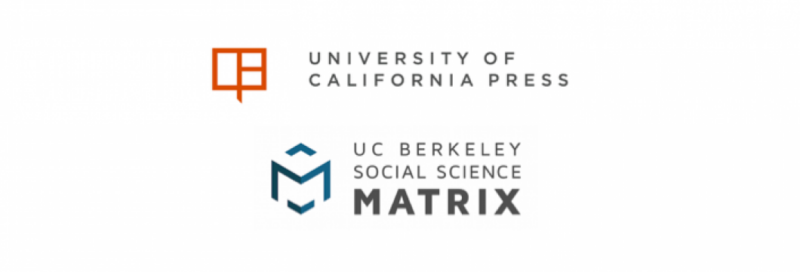Social Science Matrix, UC Berkeley’s flagship center for cross-disciplinary social science research, will soon be publishing a series of digital monographs in collaboration the University of California Press (UC Press).
“For the past couple years, we have had on the table the idea of creating a publication series that expresses the Matrix view toward cutting-edge social science research, a series consistent with our aims and objectives and values,” explains Bill Hanks, Director of Social Science Matrix and Professor of Anthropology and Linguistics at UC Berkeley. “When this opportunity presented itself, it was too promising to not pursue.”
The initial project plan is to produce between two to three manuscripts a year, each ranging in length between 150-250 pages. The monographs will be published as part UC Press’s new Luminos Open Access Book Series. Hanks will edit the Matrix Series in collaboration with Carla Hesse, Executive Dean of the UC Berkeley College of Letters & Science, and Paul Duguid, an adjunct full professor at the UC Berkeley School of Information. An advisory board composed of UC Berkeley faculty members will help solicit and assess proposals.
The monographs will be written by UC Berkeley researchers, as well as “contributors around the world whose work both reflects and extends Matrix goals,” explained the three editors in their proposal, which outlines a vision “to publish innovative social-scientific scholarship to address critically important, contemporary questions from fresh, inclusive, and innovative perspectives.”
The series will reflect Matrix’ mission to break down the divisions between traditional social-science disciplines and employ novel research methods, including data-driven analysis, to address global issues like climate change, population flows, economic security, and social justice. The hypothetical topics included in the proposal range from a history of the beef industry in the United States to an examination of the data-gathering methods used in health care, education, development, and other domains. “We really want experimental, front-edge research here that’s pushing boundaries,” says Hanks. “We’re interested in research from every corner of the social science landscape.”
Stay tuned to the Social Science Matrix website and newsletter for more information on this initiative, or visit the UC Press page for our series.



